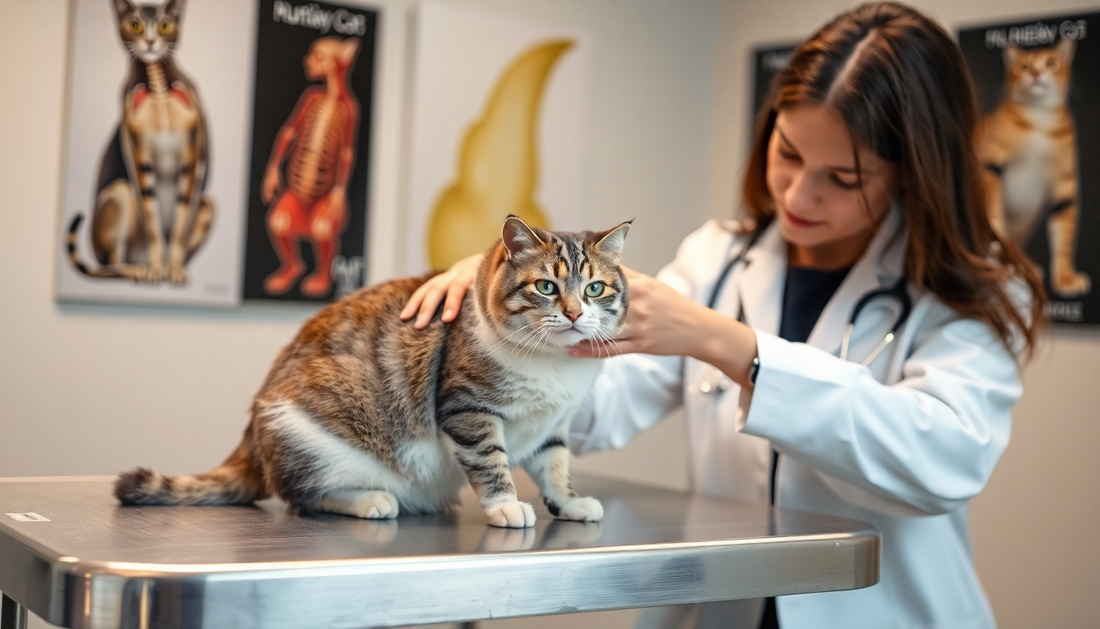
How to Fatten Up Your Feline: A Guide for Cat Owners
Partager
As a proud cat owner, I know the struggle of trying to keep our feline friends happy and healthy. One common issue many of us face is getting our cats to put on a few extra pounds. Whether your cat is naturally slender or has lost weight due to illness or old age, fattening them up can be a delicate balancing act. But fear not, my fellow cat lovers! In this blog post, I'll share some tried-and-true tips to help you fatten up your furry friend in a safe and effective way.
Understand Your Cat's Dietary Needs
The first step in fattening up your cat is to understand their unique dietary requirements. Cats are obligate carnivores, meaning they require certain nutrients found primarily in animal-based proteins. When it comes to weight gain, it's important to provide your cat with a high-calorie, nutrient-dense diet that meets their specific needs.
Look for cat food formulas that are high in protein and fat, as these macronutrients are essential for weight gain. Avoid diets that are high in carbohydrates, as these can actually hinder weight gain in cats. It's also a good idea to consult with your veterinarian to ensure you're choosing the right food for your cat's age, activity level, and any underlying health conditions.
Increase Meal Frequency
One effective way to fatten up your cat is to increase the frequency of their meals. Instead of feeding your cat two or three times a day, try offering smaller, more frequent meals throughout the day. This can help stimulate your cat's appetite and ensure they're consuming enough calories to gain weight.
Be sure to monitor your cat's food intake and adjust the portion sizes as needed. You don't want to overload your cat, as this can lead to digestive issues or even obesity. Start with small, incremental increases in meal frequency and portion size, and pay close attention to your cat's response.
Incorporate High-Calorie Treats
In addition to a nutrient-dense diet, you can also use high-calorie treats to help your cat gain weight. Look for treats that are rich in healthy fats and proteins, such as freeze-dried meat or fish, or even a small amount of cooked, unsalted bacon. These calorie-dense snacks can help boost your cat's overall caloric intake and support weight gain.
Just be mindful of the total amount of treats you're giving, as they should make up only a small portion of your cat's daily caloric intake. Stick to the recommended serving sizes and avoid overindulging your cat, as this can lead to other health issues.
Encourage Exercise and Playtime
While it may seem counterintuitive, encouraging your cat to be active can actually help with weight gain. Regular exercise and playtime can stimulate your cat's appetite and help them build muscle mass, which can contribute to a healthier, more robust physique.
Set aside time each day to engage your cat in interactive play, using toys that encourage them to run, jump, and pounce. This not only helps with weight gain but also provides mental stimulation and enrichment for your feline friend.
Be Patient and Persistent
Fattening up a cat can be a slow and gradual process, so it's important to be patient and persistent. Every cat is different, and what works for one may not work for another. Keep a close eye on your cat's progress, and don't hesitate to consult with your veterinarian if you have any concerns or questions.
Remember, the goal is to help your cat achieve a healthy weight, not to turn them into a fluffy ball of fur. With the right approach and a little bit of time, you can help your beloved feline friend reach their optimal weight and enjoy a long, happy, and healthy life.
